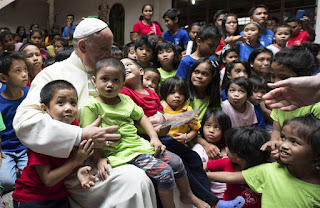Overseas Filipino Workers
I woke up to a rising sun in Doha, Qatar, one warm Sunday in March and was led to the posh Ritz-Carlton Hotel where I was billeted, when I saw them. They opened the doors of the black car that took me from the airport to the hotel’s main entrance.
‘Kabayan,’ they greeted me, the Filipino word for fellow countrymen and women. It brought me comfort to find a fellow Filipino in a Middle Eastern country I was visiting for the first time. Later in the day, when I went to the city to exchange some dollars for local currency, I saw more Filipinos, my beloved Kabayans.
They were everywhere, sweating in the scorching desert heat, toiling a living for their loved ones at home. I saw them behind the wheels of the hotel’s shiny black Audis, behind bank counters, inside exhibition halls of Doha’s Museum of Islamic Art, inside the hotel’s luxurious spa and in the hotel’s lobby lounge.
Two hours from Doha, in the industrial city of Ras Laffan, I boarded a hulking black LNG tanker and saw them staffing the kitchen, cooking for the rest of the ship’s crew.
Overseas Filipino Workers, they all are. Our government calls them unsung heroes and rightly so, because the dollar remittances they send home keep the economy afloat. According to the Bangko Sentral ng Pilipinas (BSP), recent data shows that remittances from overseas Filipino workers rose by six per cent to $1.68 billion in February from $1.59 billion in the same period last year.
The BSP expects 2013’s total remittances to grow by five per cent from 2012’s figure of $21.4 billion.
According to government statistics, there are 2.2 million overseas workers scattered all over the world, from the United Arab Emirates and Saudi Arabia to Hong Kong and the US.
- Read more at: New Internationalist: Click Here
Tim Potter Texas


